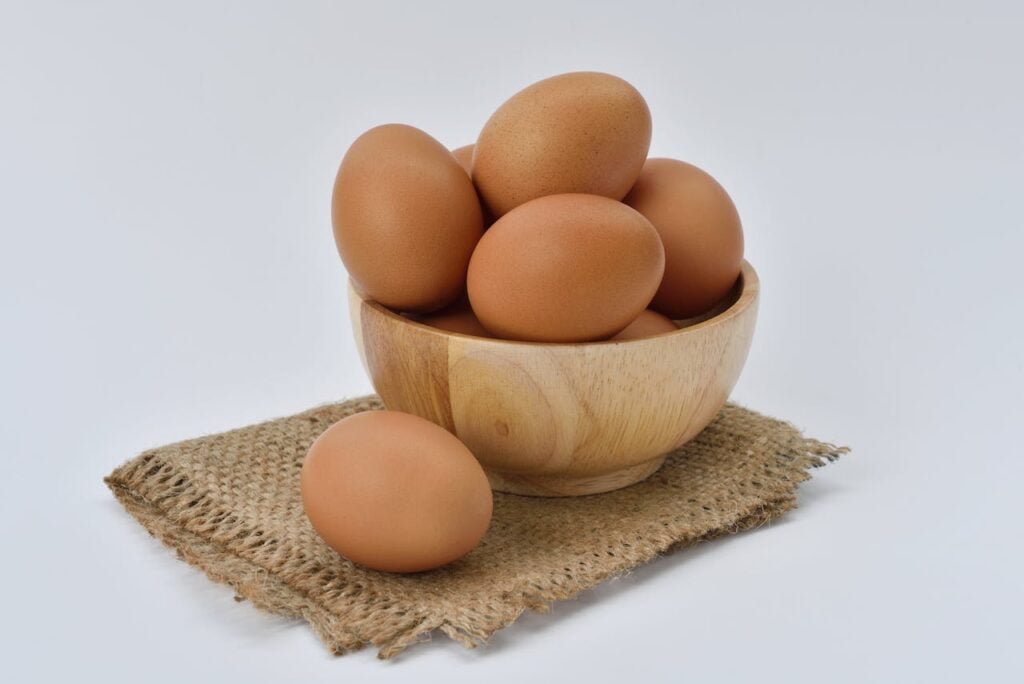Food may be the last thing on your mind when you have diarrhoea. On the other hand, when experiencing diarrhoea, it’s imperative to maintain appropriate hydration and nourishment.
Eating foods that are easy on the stomach is crucial because certain foods can worsen an upset stomach. For people suffering from diarrhoea, some suggested diets include boiled vegetables, low-fiber carbohydrates, lean poultry, crackers, soup, and eggs.
Conversely, foods that should be avoided include those that are high in fat, sugar, dairy, and spice. Foods that make you gassy should also be avoided.
1. Cereals and starches with little fibre
A low-fiber diet is advised when you have diarrhoea because it facilitates digestion and lowers the frequency of bowel movements, even though fibre is an essential component that gives stool volume and maintains regular bowel movements. It may be beneficial to boil rice, noodles, wheat, or oats, particularly if your stools are runny.
2. Vegetables boiled
Boiled veggies may be easier on your system when you have diarrhoea because raw veggies can be more difficult to digest and might produce discomfort in the form of gas and bloating. Choosing cooked veggies such as carrots, potatoes, and green beans is advised.
3. Biscuits and soup
While crackers are beneficial since they usually include a significant amount of salt, soup can help you restore your levels of nutrients and fluids. Eating meals high in salt can help replenish fluids and electrolytes, which are minerals like sodium and potassium, which can be significantly lost due to diarrhoea.
4. Lean turkey or chicken

Choose low-fat meat options like skinless chicken or turkey instead of greasy dishes with high fat content, which can exacerbate your diarrhoea. Since herbs and spices can irritate your system, Mundkur advises baking the beef and eating it without any seasonings. To flavour the meat, you can add fresh or dried herbs such as cilantro, parsley, thyme, rosemary, oregano, or basil.
5. Eggs

You can safely eat cooked eggs if you’re experiencing diarrhoea. Choose recipes like salt-seasoned scrambled eggs that don’t use a lot of butter, cheese, or seasonings.
Although the BRAT diet—bananas, rice, applesauce, and toast—was formerly recommended as a treatment for diarrhoea, the International Foundation for Gastrointestinal Disorders claims that this diet is inadequate for long-term nutritional needs. When you have a brief episode of diarrhoea, though, you can consume these foods.
For a brief while, until you can tolerate some food, you can limit your intake to solely liquids if you don’t have an appetite or if you’re experiencing nausea or vomiting in addition to diarrhoea. Liquids can aid with bowel movements and are easier to absorb.
Drink these liquids if you have diarrhoea:
- · diluted juice of fruit
- · clear broth or soup
- · Mild, decaffeinated coffee or tea
- · electrolyte-rich beverages, such as Pedialyte or Gatorade
- · Chilled popsicles
- · Gluten
Five categories of foods to stay away from while you have diarrhoea
Some foods have the tendency to make diarrhoea worse. If you have diarrhoea chronically (i.e., for a prolonged period of time or very regularly), it is advised that you speak with your doctor about the foods that may cause it specifically, as dietary intolerances can cause diarrhoea.
1. High-fat foods
High-fat foods have the potential to exacerbate diarrhoea, leading to increased bowel movements and foul-smelling, oily stools. This may occur because your body’s capacity to absorb fat might occasionally be momentarily compromised by diarrhoea. Fat usually takes longer to digest, which causes meals to pass through your system more slowly; However, food may go through your system much more quickly if your body is unable to digest fat.
After a severe episode of diarrhoea, foods high in fat should be avoided until gut function returns to normal. Fried foods, meat dishes with high fat content or added fat, nuts, and creamy sauces or dressings are a few items to stay away from.
It’s also important to remember that the opposite can occasionally occur: you could get persistent diarrhoea due to fat malabsorption, or the inability to absorb fats.
2. Milk-based products
Dairy products may be difficult for you to properly digest while you have diarrhoea, and occasionally even for a few weeks or months following your sickness. Milk, cheese, cream, and butter are examples of dairy products that should be avoided; yoghurt is an exception because it contains probiotics that can help alleviate diarrhoea. When experiencing diarrhoea, plain yoghurt is preferable because flavoured yogurt’s added sugars might cause digestive distress.
3. Spicy foods
When you have diarrhoea, stay away from spicy foods and seasonings as they might aggravate your digestive system and make you feel worse. Furthermore, the same ingredients that make food spicy when it’s consumed may also make it spicy when it comes out.
4. Sugar-filled foods
Sugar can exacerbate diarrhoea by causing the intestines to expel a lot of water, which leads to loose stools. When you have diarrhoea, stay away from sugary meals and beverages, especially those that contain artificial sweeteners like stevia and aspartame, such as soda, candies, and baked goods.
5. Foods high in gas
When you have diarrhoea, avoid some meals that tend to give you gas since they can make your condition worse and make you feel more uncomfortable. Among these foods are:
· Legumes and beans, such as kidney beans and chickpeas, are high in fibre and contain a complex sugar called raffinose that is difficult to digest.
· Broccoli, cabbage, cauliflower, and Brussels sprouts are examples of vegetables that contain raffinose.
· chewing gum, since it can cause you to inhale a lot of air and cause gas· Considering that aerated drinks contain a lot of gas and are carbonated, such as soda pop.
Having hair fall issues? Want to grow your hair faster? Here’s a blog on
